Associations to the word «Computer»
Noun
- Laptop
- Macintosh
- Graphic
- Workstation
- Programmer
- Amiga
- Atari
- Graphics
- Hacker
- Ibm
- Microprocessor
- Modem
- Cad
- Simulation
- Computing
- Hardware
- Software
- Informatics
- Electronic
- Networking
- Cpu
- Calculator
- Lab
- Pc
- Unix
- Processor
- Mathematic
- Ieee
- Gaming
- Tomography
- Automation
- Computation
- Terminal
- Electronics
- Interface
- Commodore
- Password
- Classroom
- Console
- Apple
- Disk
- Acorn
- Router
- Typing
- Simulator
- Science
- Intel
- Engineering
- Mellon
- Typewriter
- Printer
- Multimedia
- Ethernet
- Basic
- Keyword
- Tablet
- Visualization
- Encryption
- Adapter
- Programming
- Robotic
- Scientist
- Animation
- Packard
- Server
- Monitor
- Internet
- Modeling
- Scanner
- Processing
- Malfunction
- User
- Transistor
- Notebook
- Compiler
- Byte
- Mechanical
- Robotics
- Linux
- Projector
Adjective
Pictures for the word «Computer»

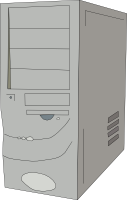 Tower case, Computer, Pc, System unit
Tower case, Computer, Pc, System unit
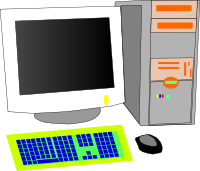 PC, Computer, Personal computer
PC, Computer, Personal computer
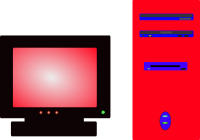 PC, Computer, Personal computer
PC, Computer, Personal computer
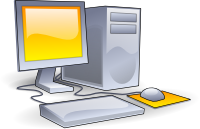 Hardware, Desktop, Computer, PC, Personal computer
Hardware, Desktop, Computer, PC, Personal computer
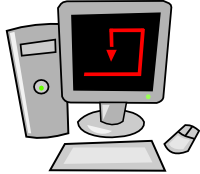 Computer, Personal computer
Computer, Personal computer
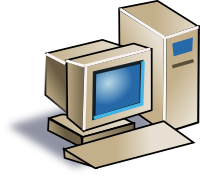 Computer, PC
Computer, PC
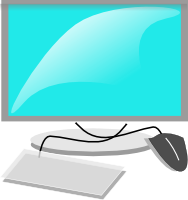 Computer
Computer
 Computer
Computer
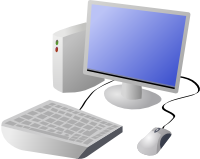 Computer, Electronic computer, Desktop
Computer, Electronic computer, Desktop
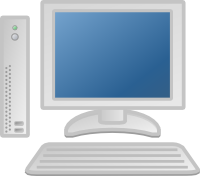 Computer, PC, Personal computer
Computer, PC, Personal computer
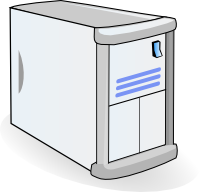 Computer, Server, Cabinet, Chassis, System unit
Computer, Server, Cabinet, Chassis, System unit
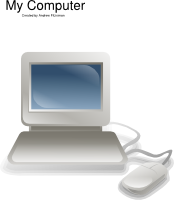 Computer, PC, Personal computer
Computer, PC, Personal computer
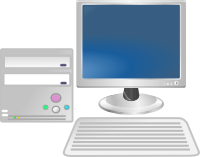 Workstation, Computer, Pc
Workstation, Computer, Pc
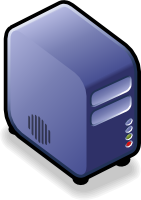 Server, Tower, Desktop, Computer
Server, Tower, Desktop, Computer
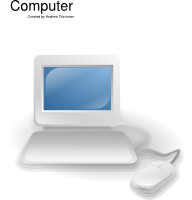 PC, Computer
PC, Computer
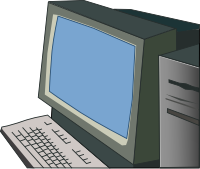 Computer, PC, Personal computer
Computer, PC, Personal computer
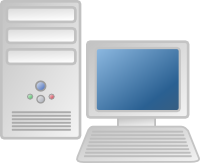 Hardware, Workstation, Computer, Pc
Hardware, Workstation, Computer, Pc
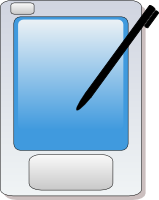 PDA, Palm, Organizer, Computer, Pocket computer
PDA, Palm, Organizer, Computer, Pocket computerWiktionary
COMPUTER, noun. (now) (rare) (chiefly historical) A person employed to perform computations; one who computes. [from 17th c.]
COMPUTER, noun. By restriction, a male computer, where the female computer is called a computress
COMPUTER, noun. A programmable electronic device that performs mathematical calculations and logical operations, especially one that can process, store and retrieve large amounts of data very quickly; now especially, a small one for personal or home use employed for manipulating text or graphics, accessing the Internet, or playing games or media. [from 20th c.]
COMPUTER ARCHITECTURE, noun. (computer hardware) The conceptual structure around which a given computer is designed.
COMPUTER ARCHITECTURE, noun. (computer hardware) The science of computer design.
COMPUTER ARCHITECTURES, noun. Plural of computer architecture
COMPUTER CHESS, noun. (computer games) (chess) Computer architecture encompassing hardware and software capable of playing chess autonomously, i.e. without human guidance.
COMPUTER CHIP, noun. (electronics) An integrated circuit, typically installed in a personal computer or other electronic devices.
COMPUTER CODE, noun. (computing) (informal) source code
COMPUTER CODE, noun. (computing) (informal) object code
COMPUTER ENGINEERING, noun. A branch of engineering that deals with design and application of computers.
COMPUTER GAME, noun. An electronic game, especially a game played using a general purpose computer (as opposed to a game console).
COMPUTER GAMES, noun. Plural of computer game
COMPUTER GRAPHICS, noun. (computing) the representation and manipulation of pictorial data by a computer
COMPUTER GRAPHICS, noun. (computing) the various technologies used to create and manipulate such pictorial data
COMPUTER GRAPHICS, noun. (computing) the images so produced
COMPUTER GRAPHICS, noun. (computing) a sub-field of computer science which studies methods for digitally synthesizing and manipulating visual content.
COMPUTER LANGUAGE, noun. (programming) Programming language.
COMPUTER LANGUAGE, noun. (programming) Machine language.
COMPUTER LANGUAGE, noun. (programming) A language that is used in association with computers, including programming languages, machine languages, query languages, markup languages etc.
COMPUTER LANGUAGES, noun. Plural of computer language
COMPUTER LITERACIES, noun. Plural of computer literacy
COMPUTER LITERACY, noun. (computing) the ability to operate a personal computer and its associated software and hardware, and to understand most of the underlying concepts (but not necessarily the electronics, or a programming language)
COMPUTER LITERATE, adjective. (computing) able to operate a personal computer and its associated software and hardware, and to understand most of the underlying concepts (but not necessarily the electronics, or a programming language)
COMPUTER MODEL, noun. (software engineering) a computer program, or network of computers, that attempts to simulate an abstract model of a particular system.
COMPUTER MODELS, noun. Plural of computer model
COMPUTER PROCESSOR, noun. A component of a computer that executes a program of instructions.
COMPUTER PROGRAM, noun. A complete piece of software. A set of instructions for a computer. This term can refer to either the executable form that a computer can execute (executable code) or the human readable form (source code). (Several programs, each of which does a task, can be collected as a software package or suite).
COMPUTER PROGRAMME, noun. (British spelling) Rare form of computer program.
COMPUTER PROGRAMMING, noun. (programming) The process of designing, writing, testing, debugging, and maintaining the source code of computer programs.
COMPUTER PROGRAMMINGS, noun. Plural of computer programming
COMPUTER PROGRAMS, noun. Plural of computer program
COMPUTER SCIENCE, noun. The study of computers and their architecture, languages, and applications, in all aspects, as well as the mathematical structures that relate to computers and computation.
COMPUTER SCIENTIST, noun. One who studies or practises computer science.
COMPUTER SCIENTISTS, noun. Plural of computer scientist
COMPUTER SECURITY, noun. A branch of information security applied to both theoretical and actual computer systems.
COMPUTER SECURITY, noun. A branch of computer science that addresses enforcement of 'secure' behavior on the operation of computers.
COMPUTER SIMULATION, noun. (software engineering) a computer model
COMPUTER SIMULATIONS, noun. Plural of computer simulation
COMPUTER SYSTEM, noun. (computing) A system for computing that includes the computing unit itself and its peripherals.
COMPUTER SYSTEMS, noun. Plural of computer system
COMPUTER TECHNICIAN, noun. (computing) A person who repairs computers. Typically they repair both hardware and software.
COMPUTER TECHNICIANS, noun. Plural of computer technician
COMPUTER VIRI, noun. (proscribed) plural of computer virus
COMPUTER VIRUS, noun. (computing) A program which can covertly transmit itself between computers via networks (especially the Internet) or removable storage such as disks and USB drives, often causing damage to systems and data.
COMPUTER VIRUSES, noun. Plural of computer virus
COMPUTER VISION, noun. (artificial intelligence) The science and technology of machines that see, concerned with the theory for building artificial systems that obtain information from images, such as a video sequence, views from multiple cameras, or multi-dimensional data from a medical scanner.
COMPUTER VISION SYNDROME, noun. A temporary condition resulting from focusing the eyes on a computer display for extended periods of time. Symptoms include headaches, blurry vision, and difficulty in refocusing.
Dictionary definition
COMPUTER, noun. A machine for performing calculations automatically.
COMPUTER, noun. An expert at calculation (or at operating calculating machines).
Wise words
Words are but symbols for the relations of things to one
another and to us; nowhere do they touch upon absolute
truth.